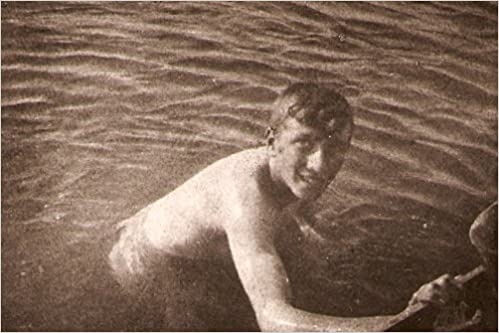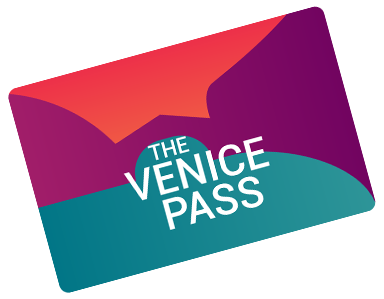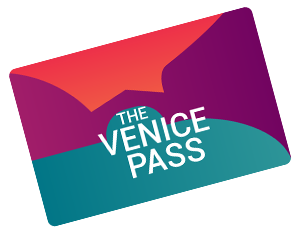One of the most controversial authors and photographers of recent history, the Baron Corvo is one of the most ambiguous, debated and discussed figures associated with the city of Venice. The story of Frederick William Rolfe, this is his real name, begins at the end of the seventeenth century in England and ends at the beginning of the twentieth century in the Venetian city. At the time Venice was a place that experienced a thousand contradictions and contrasts, among the misery that the fall of the Republic had inevitably brought with it, flashes of wealth that came mostly from international personalities who chose the city as their new home, attracted by beauty and that sense of freedom that is still strong in the Lagoon. Among these, the Serenissima attracts the world's great homosexual elite, of which Baron Corvo is undoubtedly one of the most eccentric exponents: a life that goes beyond the boundaries imposed by social conventions and bequeaths a description of the Venetian people that few have had the courage to represent.
Who was the Baron Crow?

Frederick William Serafino August Lewis Mary Rolfe was born in London in 1860 from a family of piano makers. After becoming a teacher at King's School, in Grantham, in 1886 he converted to the Catholic religion and throughout his life pursued the dream of becoming a priest: so he started the seminary in Rome but in 1889 he was expelled from the course of study because considered considered unsuitable for life spiritual and discontinuous in studies, and for his disrespectful conduct. He later became a close friend of the Duchess Sforza Cesarini, entered his circle and his graces so much that the Duchess gave him the title of Baron Corvo, which became his most recognized pseudonym even if he preferred to sign himself as Fr. Rolfe. Frederick works in England as a writer but his activity is linked to a series of supporters and benefactors who decide to finance the eccentric Baron. In 1908 he moved to Venice where he lived for the rest of his life. Here he spends years in poverty, without a permanent home and always looking for supporters who would guarantee him a pay worthy of his literary talent, even if he is accustomed to squandering the money that is donated to him in advance and often a guest at the expense of benefactors who then he bitterly scolds. At the same time, the Baron Corvo remains enchanted by the charm of Venice and falls in love with the many young gondoliers, beautiful and vigorous children that Rolfe does not hesitate to attend and describe in his writings, even in a rather harsh tone. The Baron Corvo died of a heart attack on October 25, 1913, alone and poor, and his grave is located on the island of San Michele.
The work between narration and eroticism
.jpg)
Baron Coro was the author of several books, particularly novels, some of which remained on the back burner for many years before being translated into Italian. One of his first writings is "Cronache di Casa Borgia", a hagiographic reconstruction of the events of the Borgia family, an apologia for one of the most important dynasties in history. The most famous novel by Baron Corvo is undoubtedly "Adriano VII", a fantastic autobiography that tells the life of an English literary who became Pope and who will try to save Europe from chaos and anarchy and redraw the borders of the world to his liking. Rofle's dream of becoming a priest, and why not, Pope too, has accompanied him throughout his existence, an ambition explicitly described in the novel. But the work has been the subject of numerous interpretations, some have seen within it an anticipation of the totalitarianisms that characterized the twentieth century.
"The desire and the search for everything" is considered Freferick Rolfe's masterpiece. A novel set in Venice where the city is not only the background for the events narrated, but becomes a real engine of history as it is a large magnet that attracts a large number of wealthy British seduced by the charm of the lagoon and shrewd Venetian inhabitants, always ready to steal the maximum amount of money from foreign visitors. The protagonist is Nicholas Crabbe, an English writer living in Venice (does anyone remember you?) Who wanders through the streets, fields and canals of the city in search of someone to help him establish himself as a writer and who appreciates his literary talent, “[...] People capable of seeing Venice are rare; and those who know how to express it with colors can be counted on the fingers of one hand." Here he offers a precise description of the Venetian environment at the turn of the nineteenth and twentieth centuries, but it is also a novel denouncing the condition of the artist, forced to compromise with aguzzini editors and sell off your work to survive. In the book there is also great space for the sentimental conflict of the protagonist, Crabbe is in love with a man, Zildo, that is a young Venetian whose Rofle describes all the beauty that borders on perfection, with numerous references to the ideal of beauty of the ancient Greeks: it's about a young man who really existed, a gondolier who Baron loved madly. This novel is the desperate confession of a man who did not know how to love and could not be loved, an erotic "reverie" in which manias of persecution and self-centeredness, religious and esoteric inspirations, alternate against the languid background and picturesque of the Venetian lagoon "as reported on the back cover of the book.
"Venetian letters. Tre racconti su Venezia” is a collection of 23 letters and two telegrams written between 1909 and 19010 and addressed to a wealthy English benefactor named Charles Masson Fox. The letters are a description of homosexual relationships that Baron Corvo had undertaken or imagined with young Venetian gondoliers. The purpose of the letters was to stimulate the erotic fantasies of his friend Fox in exchange for a large sum of money, with descriptions that do not spare the details. The letters were not intended for publication, but should have been destroyed once read, but these were retained and made public but not earlier than 1972 due to explicit and censored content.
"The youth of Venice has a physique as splendid as anywhere else. In a city where everyone swims from the cradle and where almost everyone over five years old has been rowing (in balance and pushing more than pulling) for twenty or thirty generations (... ), it is possible to see (and without looking for them) the penetrating, quick and cold eyes, the noble and firm necks, the opulent shoulders, the galliard arms, the absolutely splendid breasts, the flexibly muscular trunks inserted in the (and springs from) well compact hips, the long, slender legs, wrapped by nerves, the big, agile, sensitive feet, of that immortal youth to which once Ellade gave diadems".
from Il desiderio e la ricerca del tutto, by Baron Corvo.










Lascia un commento